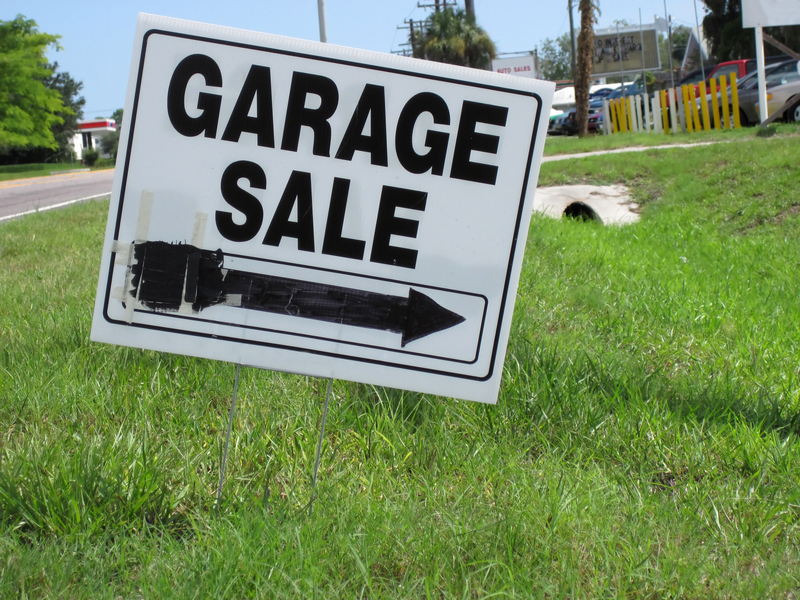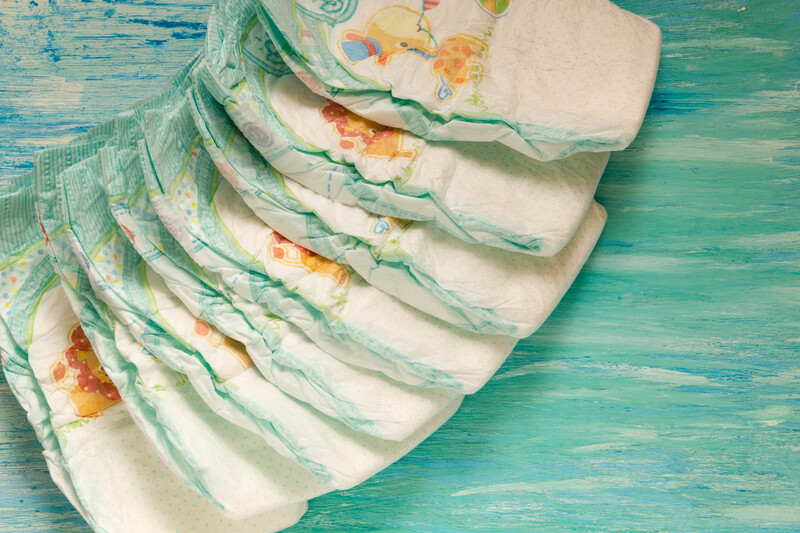Feel Stress Melt Away with the Joy of De-cluttering
Ever felt weighed down by the sheer volume of stuff in your home or workspace? If so, you're not alone. Clutter has a sneaky way of creeping up on us, creating chaos and contributing to our everyday stress. However, when you take control and start to organize your environment, you can feel stress melt away with the joy of de-cluttering. In this comprehensive guide, we will explore how de-cluttering can revolutionize your mindset, boost your well-being, and even improve your productivity. Ready to reclaim calm and create your own sanctuary? Let's dive in.

What Is De-cluttering and Why Does It Matter?
De-cluttering is more than just tidying up; it's a mindful process of sorting through your possessions and deliberately keeping only what adds value to your life. It's about transforming your space into a place of comfort and purpose, not just aesthetics. In this age of material abundance, de-cluttering is an act of self-care and intentional living.
How Clutter Impacts Your Mental Health
- Increased Stress: Clutter bombards our minds with excessive stimuli, making it hard to relax and focus.
- Sleep Disruption: A messy bedroom can interfere with your ability to unwind, resulting in poor sleep.
- Impaired Productivity: Searching for misplaced items wastes time and mental energy.
- Anxiety: A cluttered space often creates a sense of chaos, leaving us feeling unsettled.
- Reduced Motivation: The more clutter you see, the less inspired you are to clean or start new projects.
According to several psychological studies, a messy environment has been directly linked to increased levels of the stress hormone cortisol. If you want to melt stress away, creating a clutter-free space should be your first step.
The Science Behind De-cluttering: Why Organization Feels So Good
It's not just in your head--decluttering can genuinely make you feel happier, lighter, and calmer. Here's why:
- Cognitive Clarity: When your environment is orderly, your mind can focus more easily.
- Control and Agency: Putting things in their place restores a sense of control over your surroundings.
- Emotional Release: Letting go of old, unused items can help you process past memories and move forward.
- Physical Movement: The act of sorting, cleaning, and organizing gets your body moving, providing endorphin-releasing activity.
- Visual Calm: A clean space soothes the senses and reduces visual overstimulation.
Numerous studies confirm that organized spaces foster lower anxiety, greater productivity, and enhanced psychological well-being. No wonder so many people describe decluttering as therapeutic--it's a simple, effective way to feel stress melt away.
Step-by-Step Guide to Experience Joy through De-cluttering
Ready to take the plunge? Here's a practical, step-by-step plan to help you rediscover the joy of a clutter-free life and banish stress.
1. Set Your Intention
Before you start, reflect on why you want to declutter. Are you looking to create more space, reduce stress, or prepare for a new chapter in life? Clarifying your intention will keep you motivated when the process feels overwhelming.
2. Start Small and Be Consistent
- Begin with one room or even a single drawer. Don't try to tackle the entire house at once.
- Set a timer for 15-30 minutes a day to keep it manageable.
- Celebrate small wins to build momentum.
De-cluttering is not a marathon; it's a journey. Embrace the process--you'll feel lighter with each step.
3. The Sorting Process: Keep, Donate, Discard
Sort every item into one of three categories:
- Keep: Only hold on to what you truly love or need.
- Donate: Pass on usable items to others who might benefit.
- Discard: Responsibly dispose of broken or unusable belongings.
Ask yourself: Does this item spark joy or serve a real purpose in my life?
4. Organize Intentionally
- Group similar items together (for example, books, clothes, office supplies).
- Use storage solutions like baskets, shelves, and containers to create order.
- Label everything to ensure you--and others--can keep things organized long-term.
Intentional organization allows you to find what you need quickly, reducing frustration and giving you more time to enjoy your peaceful space.
5. Create Clutter-Free Habits
The true joy of de-cluttering comes when you maintain your tidy space. Form habits that keep clutter at bay:
- Adopt a 'one-in, one-out' rule: When you get something new, let something go.
- Spend five minutes at the end of each day putting things back in their place.
- Regularly review your belongings--at least once per season.
Consistency is key to ensuring stress stays gone and your space remains a source of calm and inspiration.
Unexpected Benefits: What Happens When You Declutter?
Reduced Stress and Enhanced Mood
It's no exaggeration: countless individuals report that they feel stress melt away with each bag of items donated or discarded. The mind feels more at ease, and daily irritations lessen.
Improved Focus and Productivity
A tidy environment supports sharper focus and greater efficiency, making it easier to complete tasks and achieve your goals.
Better Relationships and Social Life
A clutter-free home is more inviting for family and friends, strengthening relationships and boosting your willingness to host.
Financial Clarity and Mindful Spending
By recognizing which possessions truly add value, you naturally become more intentional with new purchases, saving money and avoiding future clutter.
Deeper Self-Understanding
Decluttering encourages introspection. As you assess each item, you evaluate your values, memories, and priorities--sometimes leading to powerful personal growth.
Tips for Tackling Specific Spaces
Every area of your home brings its own decluttering challenges. Here are expert tips for the most commonly cluttered spaces:
The Kitchen
- Clear off countertops to minimize visual distractions.
- Purge expired pantry items and little-used gadgets.
- Designate zones for prep, cooking, and storage to streamline your routine.
The Bedroom
- Keep only essential items on nightstands.
- Edit your wardrobe: Donate clothes that no longer fit or bring you joy.
- Store out-of-season items to free up everyday space.
The Office
- Minimize paper clutter with a filing system or digital storage.
- Organize supplies in drawers or containers by type for easy access.
- Keep your desktop clear to boost focus and creativity.
The Living Room
- Create designated spots for remotes, magazines, and toys.
- Limit decorative items to a few favorites for a restful feel.
- Incorporate storage furniture like ottomans or shelves to conceal clutter.
Common Roadblocks and How to Overcome Them
De-cluttering, while rewarding, can bring up emotional and practical challenges. Here's how to tackle the most frequent obstacles:
- Sentimental Items: It's hard to let go of things tied to memories. Take photos, create memory boxes, or set boundaries for how much space they occupy.
- Overwhelm: Staring down a mountain of clutter can sap your motivation. Remove a small section at a time and take breaks to avoid burnout.
- Lack of Time: Break tasks into short sessions. Even five minutes a day adds up!
- Guilt: Donating or discarding gifts might feel ungrateful. Remember, the joy from gifts comes in the giving, not the duration of possession.
- "What If I Need This?": If you haven't used something in a year, chances are, you don't truly need it.
Make De-cluttering Joyful: Fun and Motivation Boosters
Who says de-cluttering can't be fun? Try these tips to inspire joy in the process and help stress truly melt away:
- Create a playlist of your favorite upbeat tunes to keep you energized.
- Involve the whole family and make it a game (who can fill their donate box fastest?).
- Reward yourself: Treat yourself to a relaxing bath or a stroll in your new, serene space once you're done.
- Track your progress with before-and-after photos--you'll be amazed at the transformation!
Troubleshooting: Frequently Asked De-cluttering Questions
How often should I declutter?
While there's no universal answer, a seasonal review (every three to four months) keeps clutter manageable. Quick daily "tidy-ups" are also invaluable.
I feel guilty throwing things away. What can I do?
Focus on donating or recycling where possible. Visualize your items finding new homes and being loved by others--this can alleviate guilt and make letting go easier.
Can decluttering really help with anxiety?
Absolutely. Countless people report feeling significantly calmer, more focused, and happier after organizing their spaces. De-cluttering can be a simple, accessible antidote to everyday stress and anxiety.
How do I maintain a clutter-free environment?
Form the habit of mindful consumption. Ask yourself whether new purchases are necessary. Regularly edit your belongings and stick to the "one-in, one-out" philosophy.

Feel Stress Melt Away: Decluttering as an Ongoing Ritual
Decluttering doesn't have to be a one-time event. When you see it as an ongoing celebration of self-care and intentional living, you'll truly discover the joy of decluttering. The feeling of stress melting away from your mind and body as you clear your space is priceless.
Start Your Own Decluttering Journey Today
As you embark on your journey, remember--progress, not perfection, is the goal. With each bag you clear and every drawer you organize, you're nurturing your own mental health and creating an environment primed for happiness and growth.
- Set your intention and visualize your peaceful space.
- Take it one step, one space, one day at a time.
- Celebrate your wins and feel the stress truly melt away.
Take a deep breath. The joy of decluttering awaits--your mind, body, and soul will thank you. Let the stress melt away, and embrace the serenity of a space that reflects your best self.